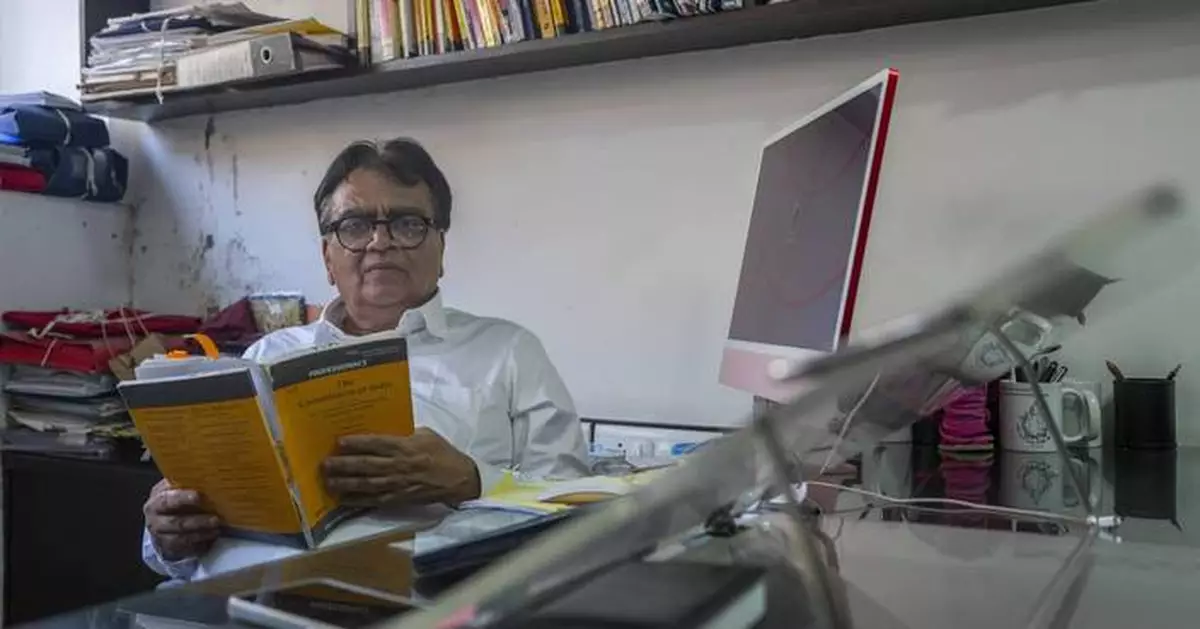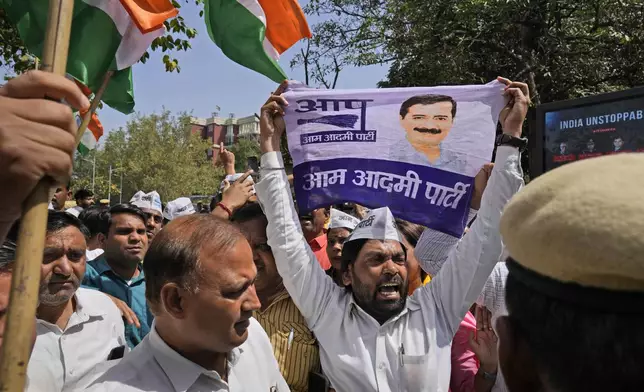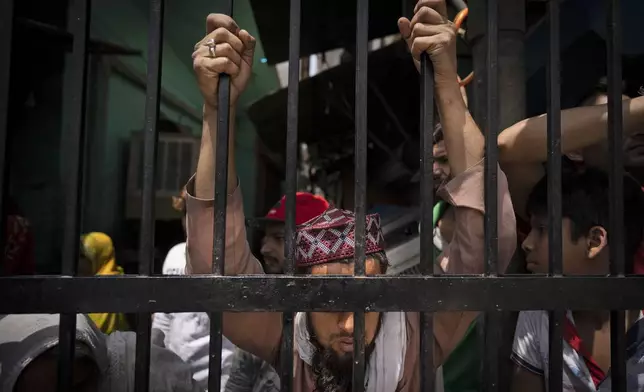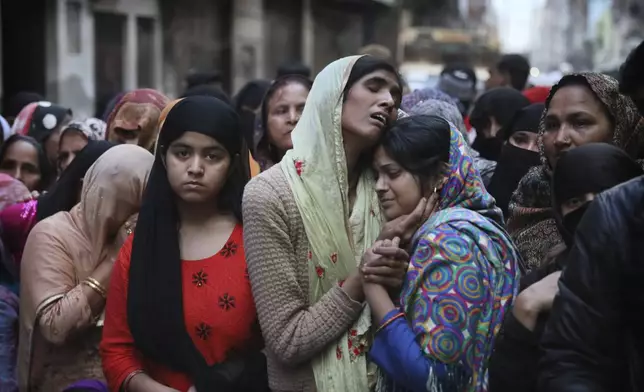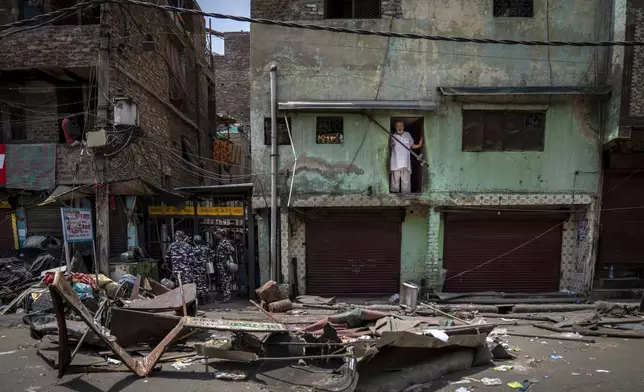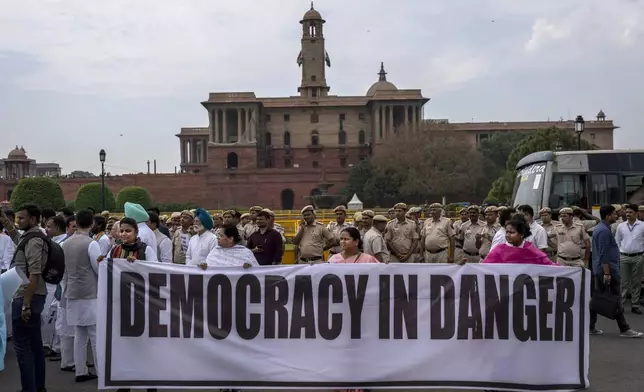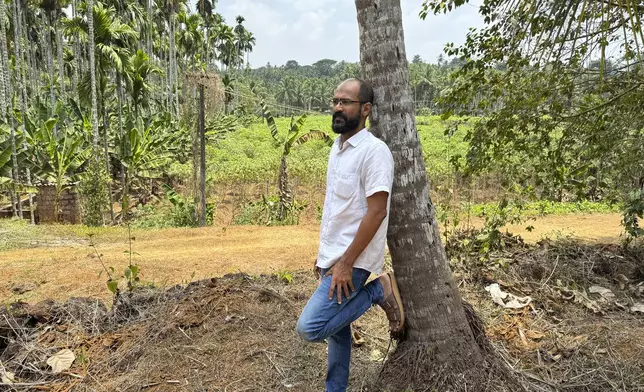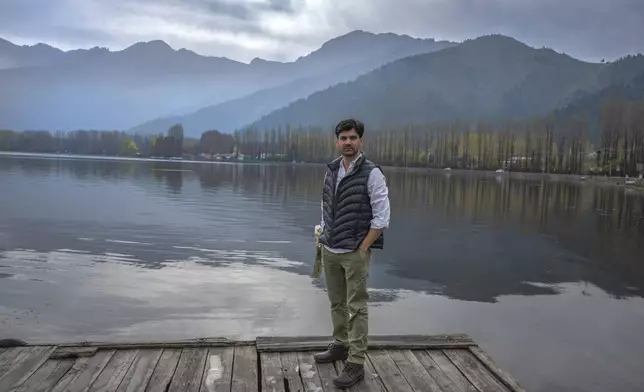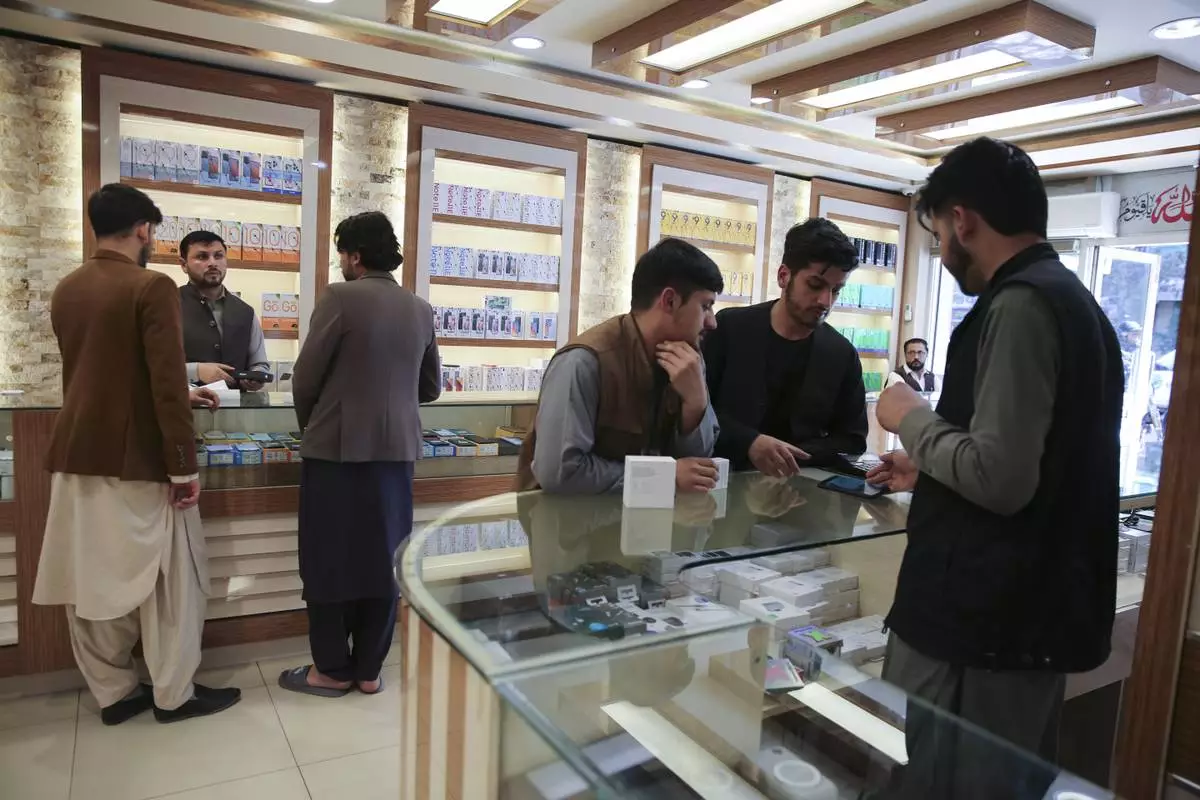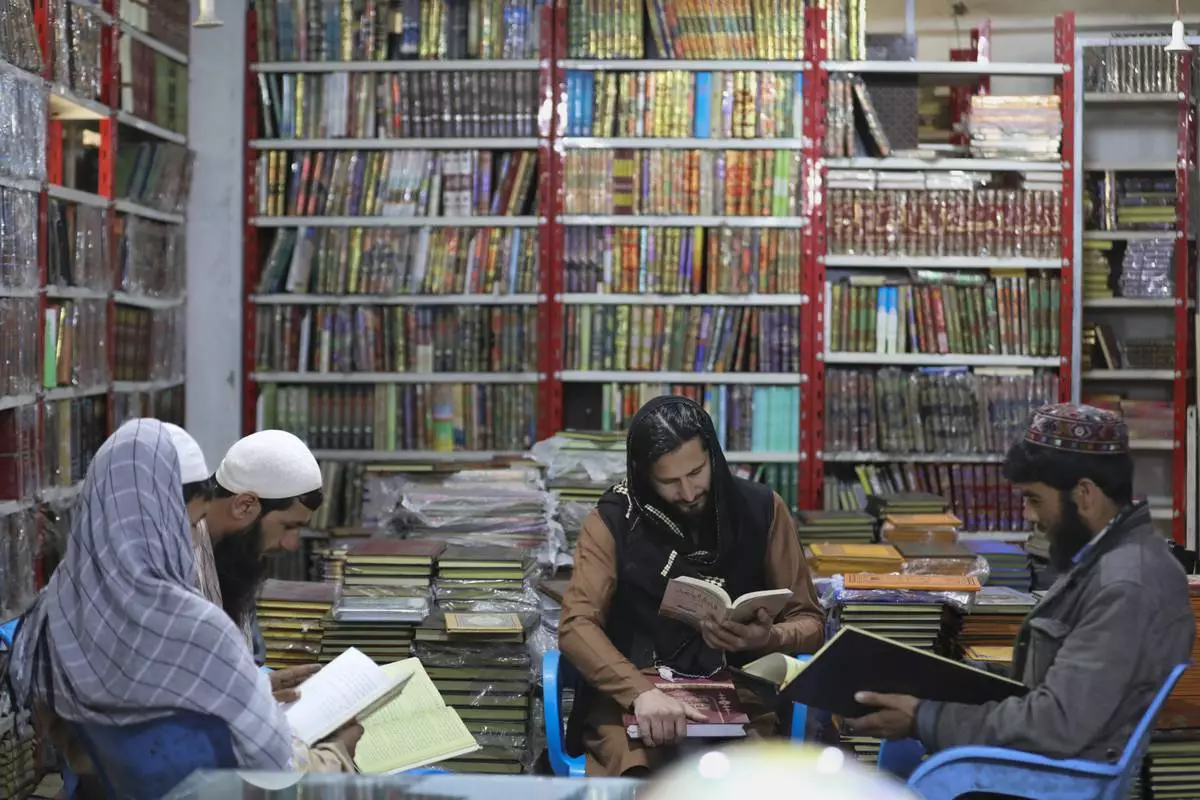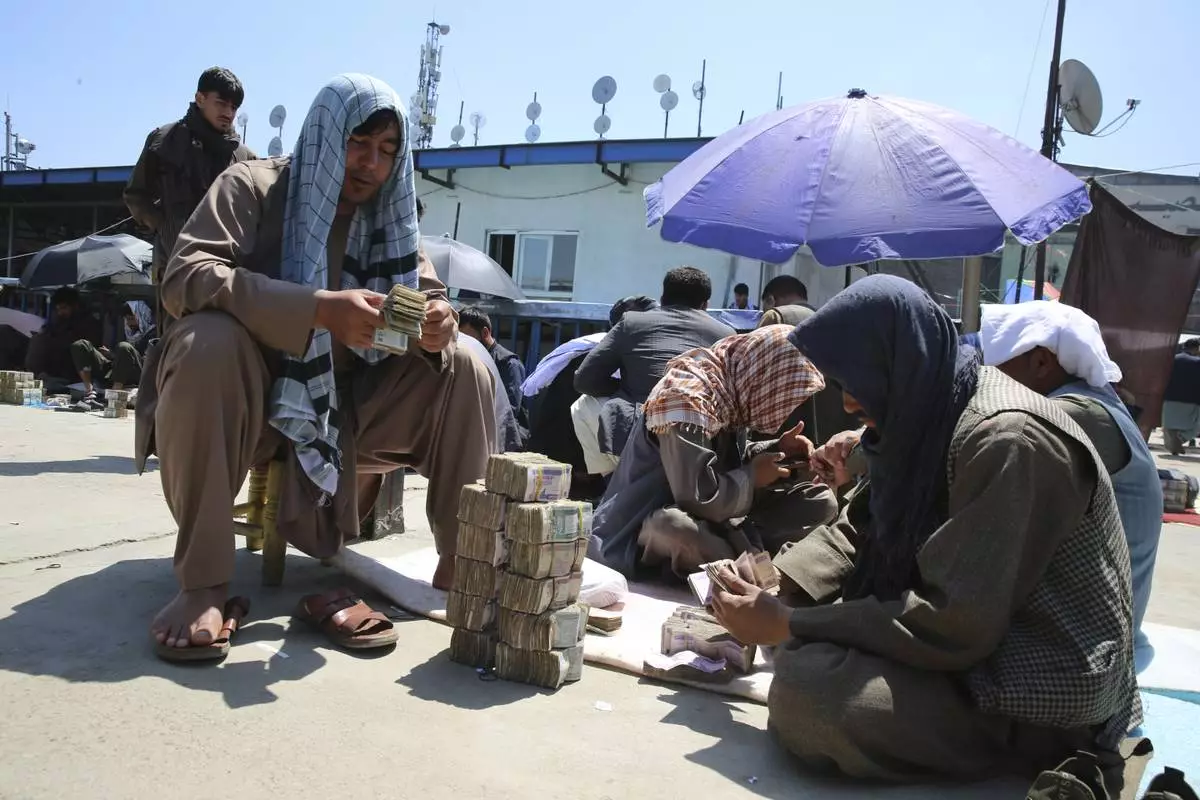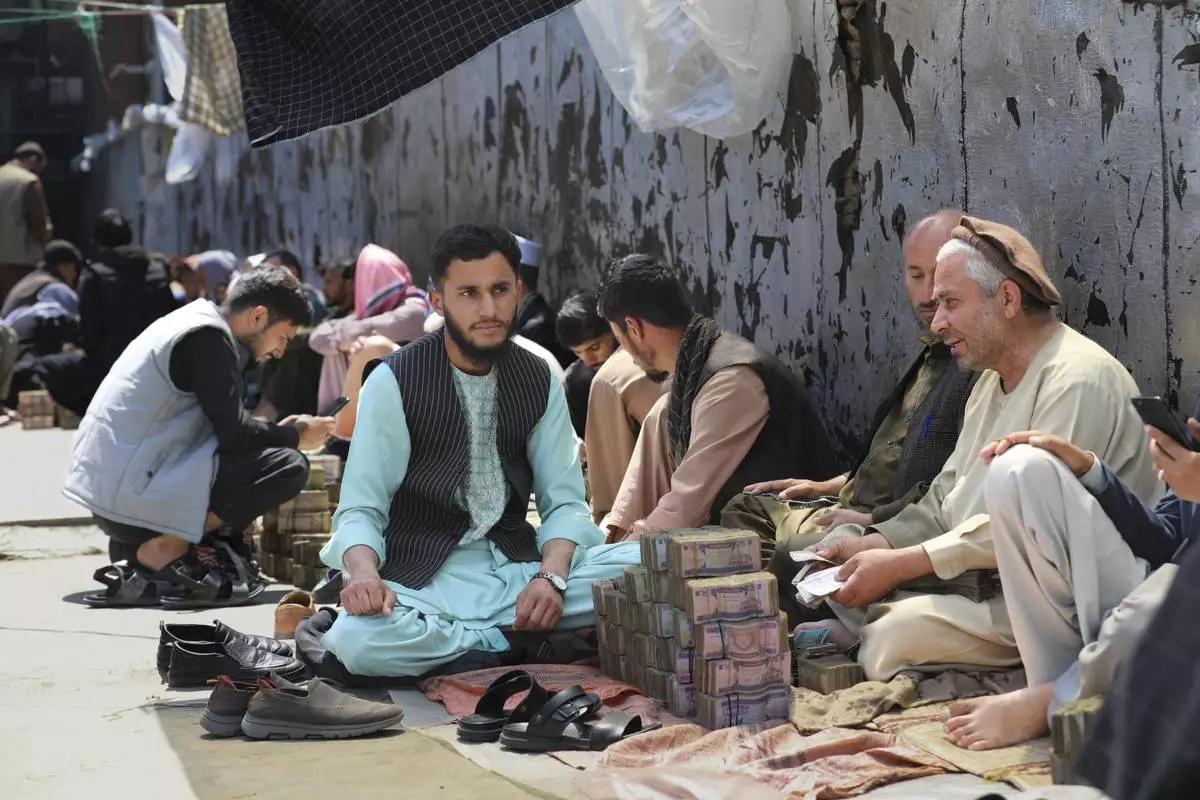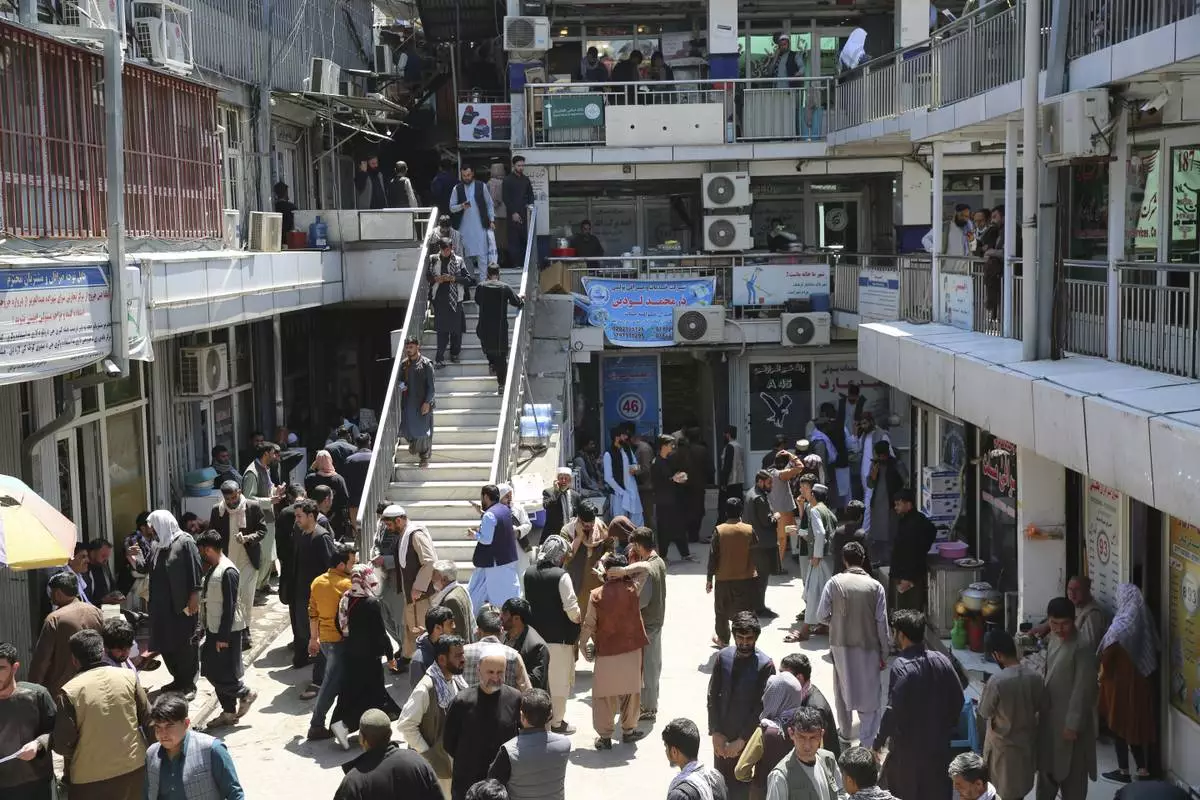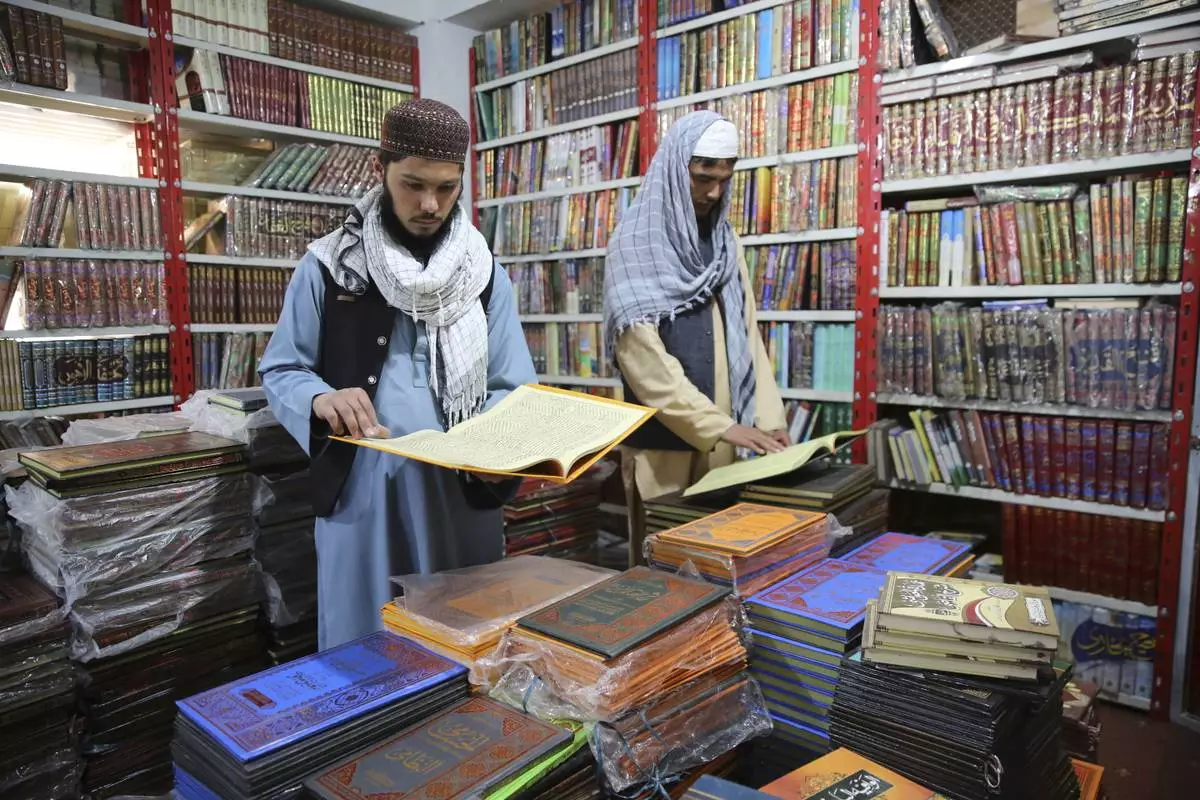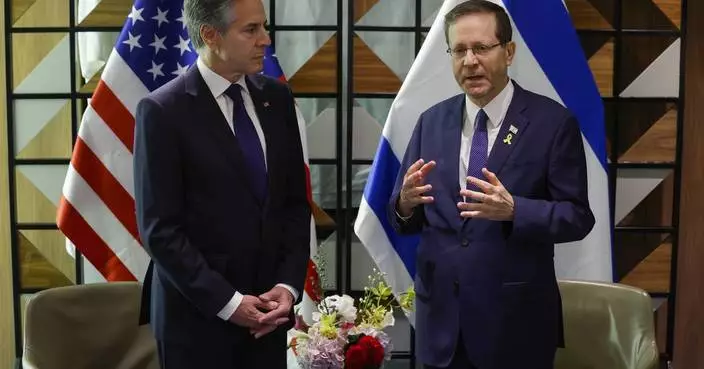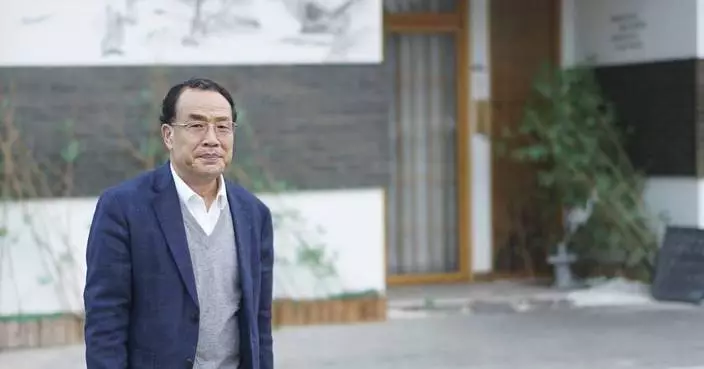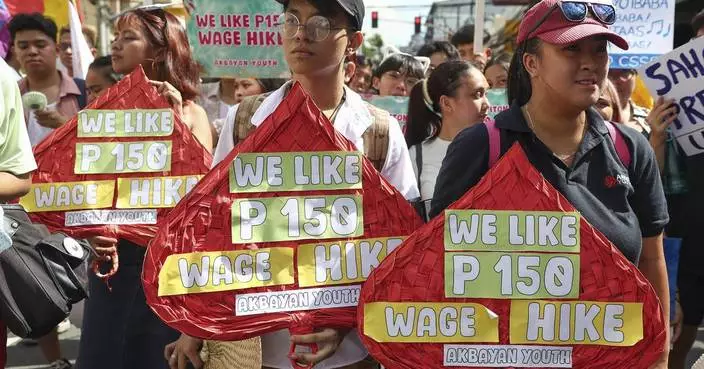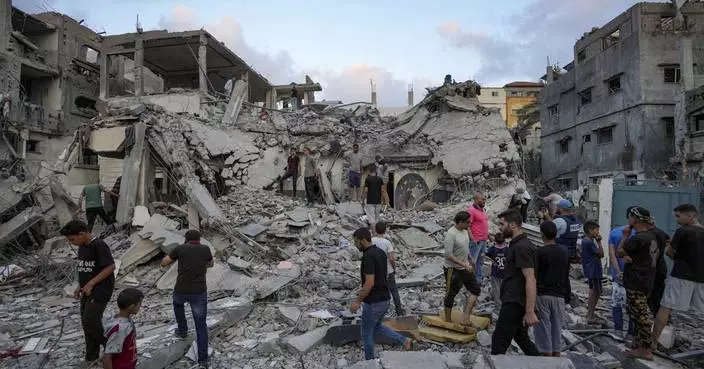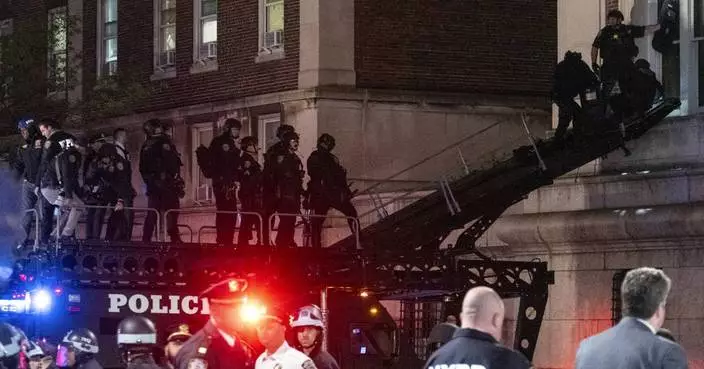NEW DELHI (AP) — Indian Prime Minister Narendra Modi and his government are increasingly wielding strong-arm tactics to subdue political opponents and critics of the ruling Hindu-nationalist party ahead of the nationwide elections that begin this week.
A decade into power, and on the cusp of securing five more years, the Modi government is reversing India’s decadeslong commitment to multiparty democracy and secularism.
The ruling Bharatiya Janata Party has brought corruption charges against many officials from its main rival, the Congress Party, but few convictions. Dozens of politicians from other opposition parties are under investigation or in jail. And just last month, Modi’s government froze the Congress party’s bank accounts for what it said was non-payment of taxes.
The Modi administration says the country's investigating agencies are independent and that its democratic institutions are robust, pointing to high voter turnout in recent elections that have delivered Modi's party a clear mandate.
Yet civil liberties are under attack. Peaceful protests have been crushed with force. A once free and diverse press is threatened. Violence is on the rise against the Muslim minority. And the country’s judiciary increasingly aligns with the executive branch.
To better understand how Modi is reshaping India and what is at stake in an election that begins Friday and runs through June 1, The Associated Press spoke with a lawyer, a journalist, and an opposition politician.
Here are their stories:
Mihir Desai has fought for the civil liberties and human rights of India’s most disadvantaged communities, such as the poor and Muslims, for nearly four decades.
The 65-year-old lawyer from India's financial capital Mumbai is now working on one of his — and the country’s — most high-profile cases: defending a dozen political activists, journalists and lawyers jailed in 2018 on accusations of plotting to overthrow the Modi government. The accusations, he says, are baseless — just one of the government’s all-too-frequent and audacious efforts to silence critics.
One of the defendants in the case, a Jesuit priest and longtime civil rights activist, died at age 84 after about nine months in custody. The other defendants remain in jail, charged under anti-terror laws that rarely result in convictions.
“First authorities came up with a theory that they planned to kill Modi. Now they are being accused of being terrorist sympathizers,” he said.
The point of it all, Desai believes, is to send a message to any would-be critics.
According to digital forensics experts at U.S.-based Arsenal Consulting, the Indian government hacked into the computers of some of the accused and planted files that were later used as evidence against them.
To Desai, this is proof that the Modi government has “weaponized” the country’s once-independent investigative agencies.
He sees threats to Indian democracy all around him. Last year, the government removed the country’s chief justice as one of three people who appoint commissioners overseeing elections; Modi and the opposition leader in parliament are the others. Now, one of Modi’s cabinet ministers has a vote in the process, giving the ruling party a 2-1 majority.
“It’s a death knell to free and fair elections,” Desai said.
Waheed-Ur-Rehman Para, 35, was long seen as an ally in the Indian government’s interests in Kashmir. He worked with young people in the majority-Muslim, semi-autonomous region and preached to them about the benefits of embracing India and its democratic institutions — versus seeking independence, or a merger with Pakistan.
Beginning in 2018, though, Para was viewed with suspicion by the Modi government for alleged connections to anti-India separatists. Since then, he has been jailed twice: in 2019 on suspicion that he and other political opponents could stoke unrest; and in 2020 on charges of supporting militant groups — charges he denies.
The accusations stunned Para, whose People’s Democratic Party once ruled Kashmir in an alliance with Modi’s party.
But he believes the motivation was clear: “I was arrested to forcibly endorse the government’s 2019 decision,” he said, referring to a clampdown on the resistance in Kashmir after the elimination of the region's semi-autonomous status.
Modi's administration argues the move was necessary to fully integrate the disputed region with India and foster economic development there.
After his 2020 arrest, Para remained in jail for nearly two years, often in solitary confinement, and was subjected to “abusive interrogations,’’ according to U.N. experts.
“My crime was that I wanted the integration of Kashmir, not through the barrel of the gun,” said Para, who is seeking to represent Kashmir's main city in the upcoming election.
Para sees his own plight within the larger context of the Modi government’s effort to silence perceived opponents, especially those with ties to Muslims, who make up 14% of India’s population.
“It is a huge ethical question … that the largest democracy in the world is not able to assimilate, or offer dignity to, the smallest pocket of its people,” he said.
The campaign to turn once-secular India into a Hindu republic may help Modi win elections in the short term, Para said, but something much bigger will be lost.
“It risks the whole idea of this country’s diversity,” he said.
In October 2020, independent journalist Sidhique Kappan was arrested while trying to report on a government clampdown in the northern Uttar Pradesh state ruled by Modi’s party.
For days, authorities had been struggling to contain protests and outcry over a gruesome rape case. Those accused of the crime were four upper caste Hindu men, while the victim belonged to the Dalit community, the lowest rung of India's caste hierarchy.
Kappan, a 44-year-old Muslim, was detained and jailed before he even reached the crime site, accused of intending to incite violence. After two years in jail, his case reached India’s top court in 2022. While he was quickly granted bail, the case against him is ongoing.
Kappan’s case is not unique, and he says it highlights how India is becoming increasingly unsafe for journalists. Under intense pressure from the state, many Indian news organizations have become more pliant and supportive of government policies,
“Those who have tried to be independent have come under relentless attack by the government,” he said.
Foreign journalists are banned from reporting in Kashmir, for example. Same goes for India’s northeast Manipur state, which has been embroiled in ethnic violence for almost a year.
Television news is increasingly dominated by stations touting the government’s Hindu nationalist agenda, such as a new citizenship law that excludes Muslim migrants. Independent TV stations have been temporarily shut down, and newspapers that run articles critical of Modi’s agenda find that any advertising from the government – an important source of revenue – quickly dries up.
Last year, the India offices of the BBC were raided on tax irregularities just days after it aired a documentary critical of Modi.
The advocacy group Reporters Without Borders ranks India 161st on a worldwide list of countries’ press freedoms.
Kappan said he has barely been able to report news since his arrest. The trial keeps him busy, requiring him to travel to a court hundreds of miles away every other week. The time and money required for his trial have made it difficult for him to support his wife and three children, Kappan said.
“It is affecting their education, their mental health,” he said.
Associated Press journalists Piyush Nagpal and Subramoney Iyer in Kerala, India, contributed to this report.
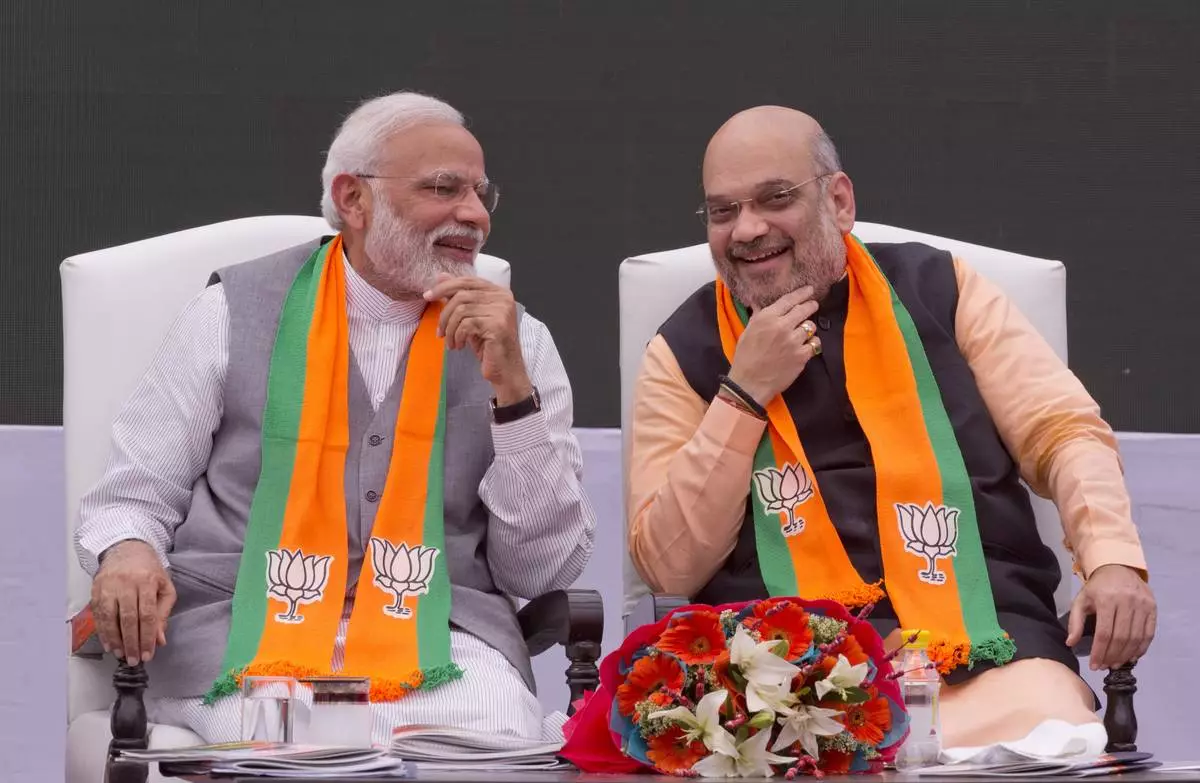
FILE - Indian Prime Minister Narendra Modi, left, and the president of the Bharatiya Janata Party, Amit Shah, in New Delhi, India, April 8, 2019. (AP Photo/Manish Swarup, File)
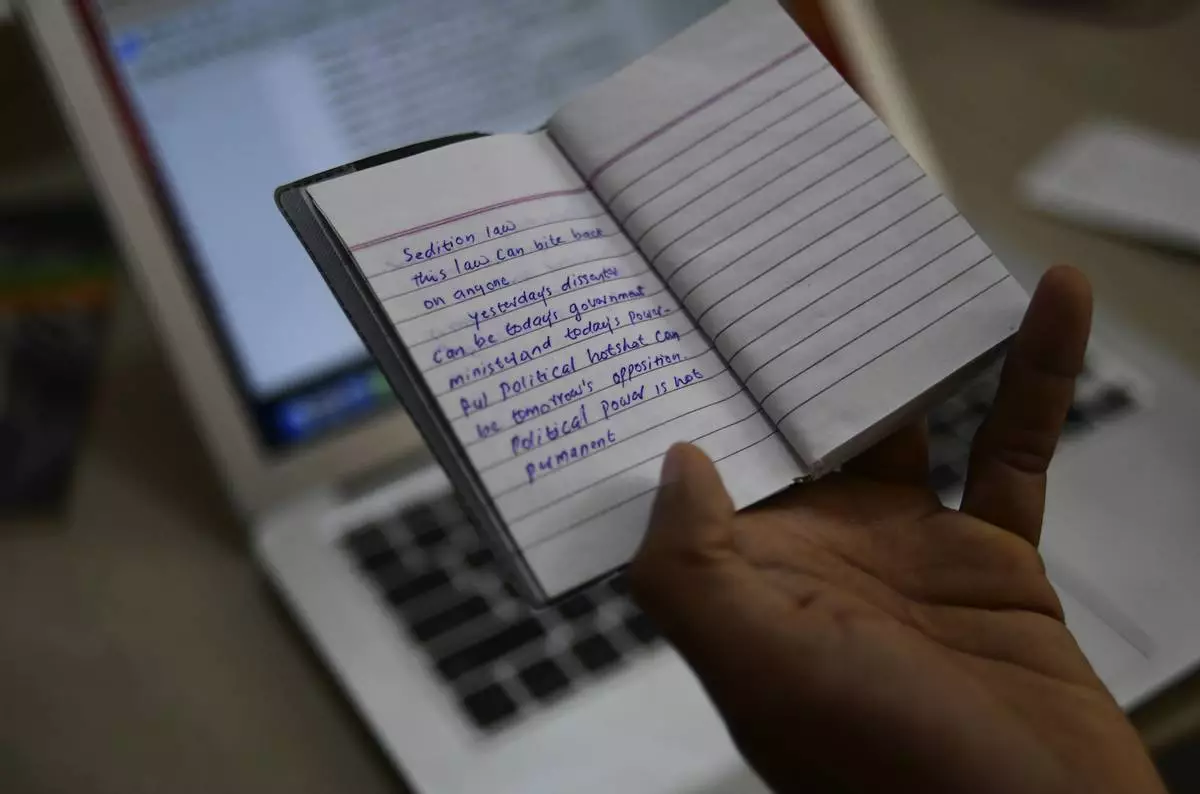
CORRECTS JOURNALIST'S FIRST NAME - Indian journalist Sidhique Kappan at his home in Kerala, India, shows notes from the diary he kept in prison, April 1, 2024. He was charged in 2020 on allegations of inciting violence while trying to report on a government clampdown in the northern Uttar Pradesh state ruled by the party of Prime Minister Narendra Modi. The time it takes to defend himself has made it difficult to work to support his family. (AP Photo/R S Iyer)
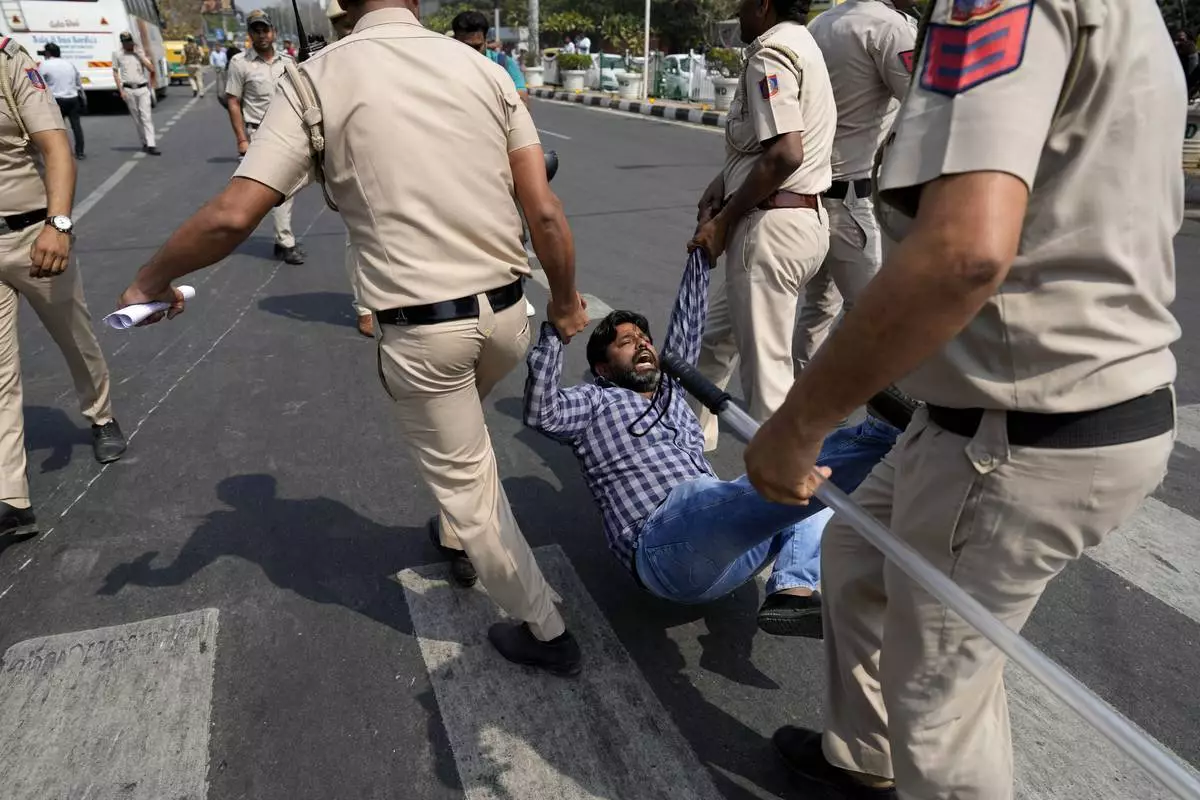
Police detain a man protesting the arrest of a leader of the Aam Aadmi Party in New Delhi, India, March 22, 2024. India's ruling Bharatiya Janata Party has brought corruption charges against many officials from opposition parties, but few convictions. (AP Photo/Manish Swarup)

Supporters of the Aam Aadmi Party protest against the arrest of their party leader in New Delhi, India, March 26, 2024. India's ruling Bharatiya Janata Party has brought corruption charges against many officials from opposition parties, but few convictions. (AP Photo/Manish Swarup)
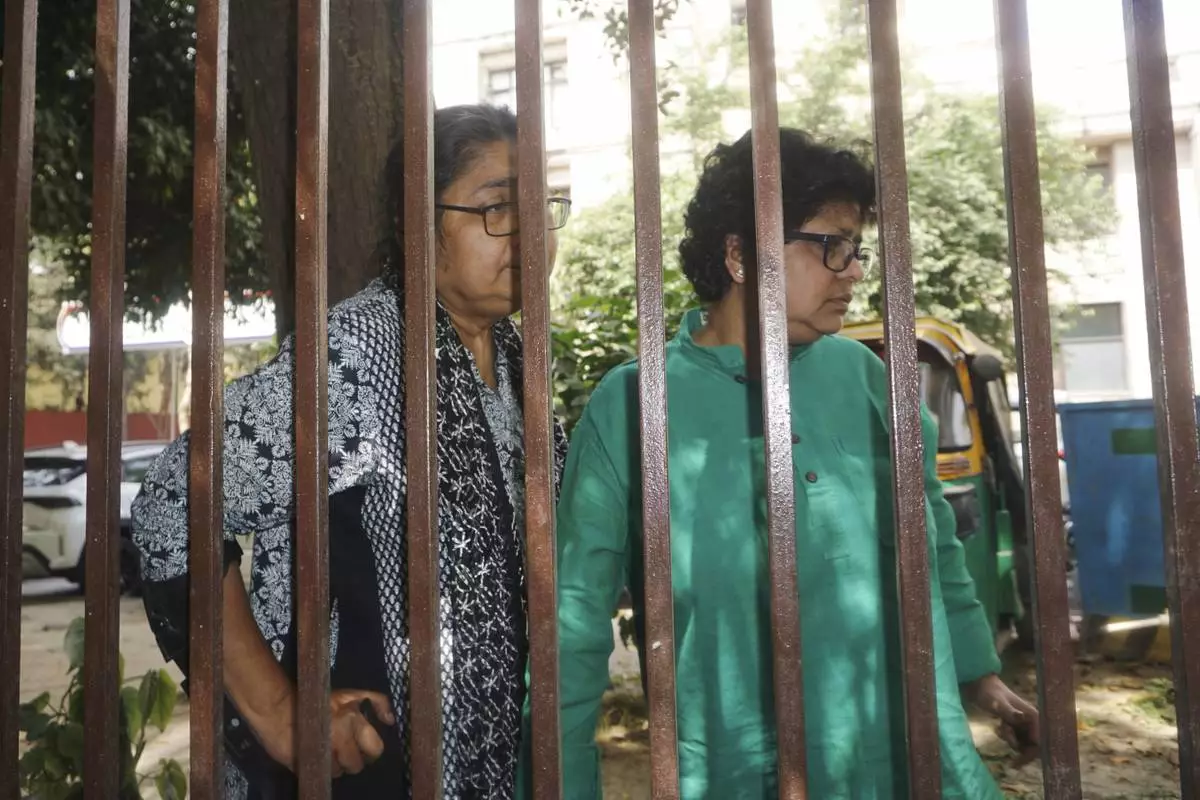
Leaders from India's Trinamool Congress political party, Dola Sen, left, and April Ghosh, talk to the media after being detained while protesting outside the Election Commission's office, in New Delhi, India, Tuesday, April 9, 2024.(AP Photo/Dinesh Joshi)

FILE- A Muslim man stands behind an iron gate bolted shut by authorities during the demolition of Muslim-owned shops in New Delhi, India, April 20, 2022. India's Supreme Court halted the demolitions after violence between Hindus and Muslims. (AP Photo/Altaf Qadri, File)

FILE- Relatives and neighbors mourn after a man was killed during violent clashes between Hindus and Muslims in New Delhi, India, Feb. 27, 2020. (AP Photo/Manish Swarup, File)

FILE- A Muslim man looks from his house after a shop was demolished during a Hindu religious procession that turned violent in New Delhi, India, April 20, 2022. Authorities riding bulldozers razed a number of Muslim-owned shops before India's Supreme Court halted the demolitions. (AP Photo/Altaf Qadri, File)
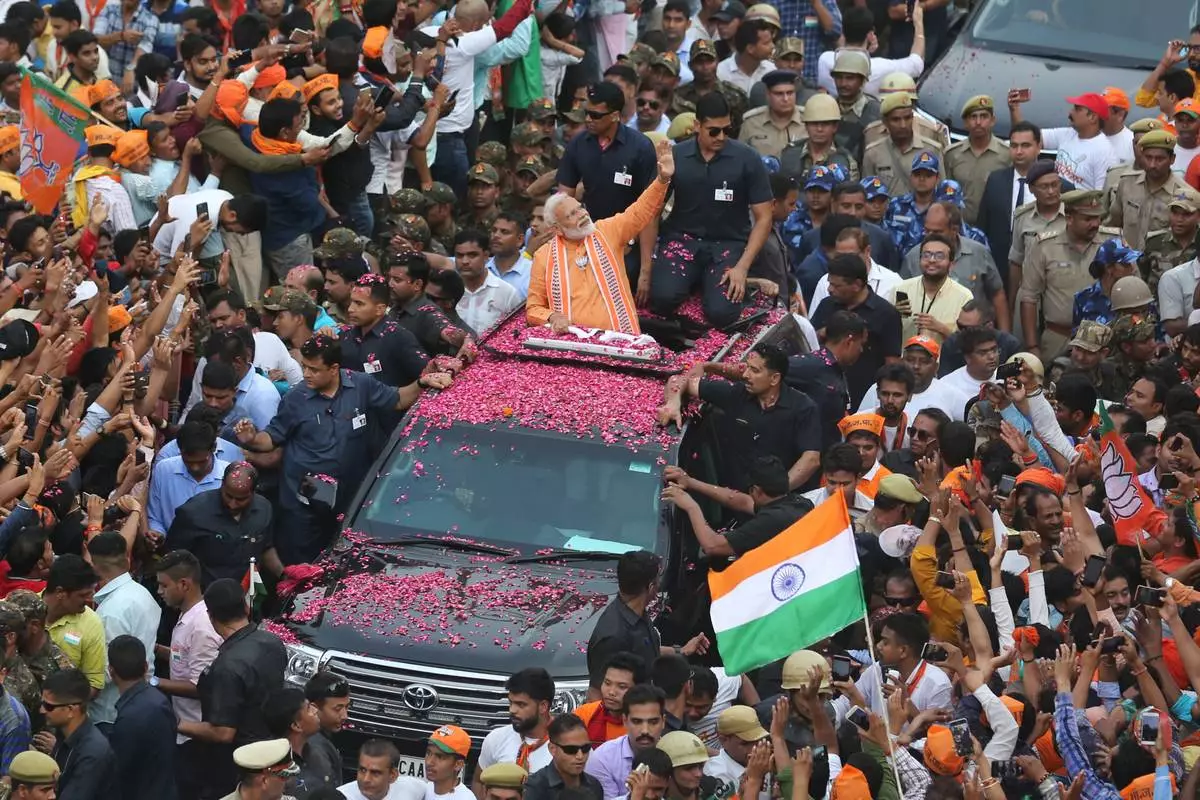
FILE - Indian Prime Minister Narendra Modi waves to a crowd while campaigning in Varanasi, India, April 25, 2019. (AP Photo/Rajesh Kumar Singh, file)

FILE - Lawmakers from India's opposition parties protest against the government of Prime Minister Narendra Modi outside the parliament in New Delhi, India, March 24, 2023. (AP Photo/Altaf Qadri, file)

CORRECTS JOURNALIST'S FIRST NAME - Indian journalist Sidhique Kappan poses for a photograph near his home in Kerala, India, April 1, 2024. He was charged in 2020 on allegations of inciting violence while trying to report on a government clampdown in the northern Uttar Pradesh state ruled by the party of Prime Minister Narendra Modi. The time it takes to defend himself has made it difficult to work to support his family. (AP Photo/R S Iyer)

Politician Waheed-Ur-Rehman Para poses for a photograph at the Dal Lake in Srinagar, in Indian-controlled Kashmir, April 3, 2024. Para has been jailed twice by the government of Prime Minister Narendra Modi, first on allegations of stoking political unrest, then on charges of supporting militant groups -- charges he denies. (AP Photo/Dar Yasin)
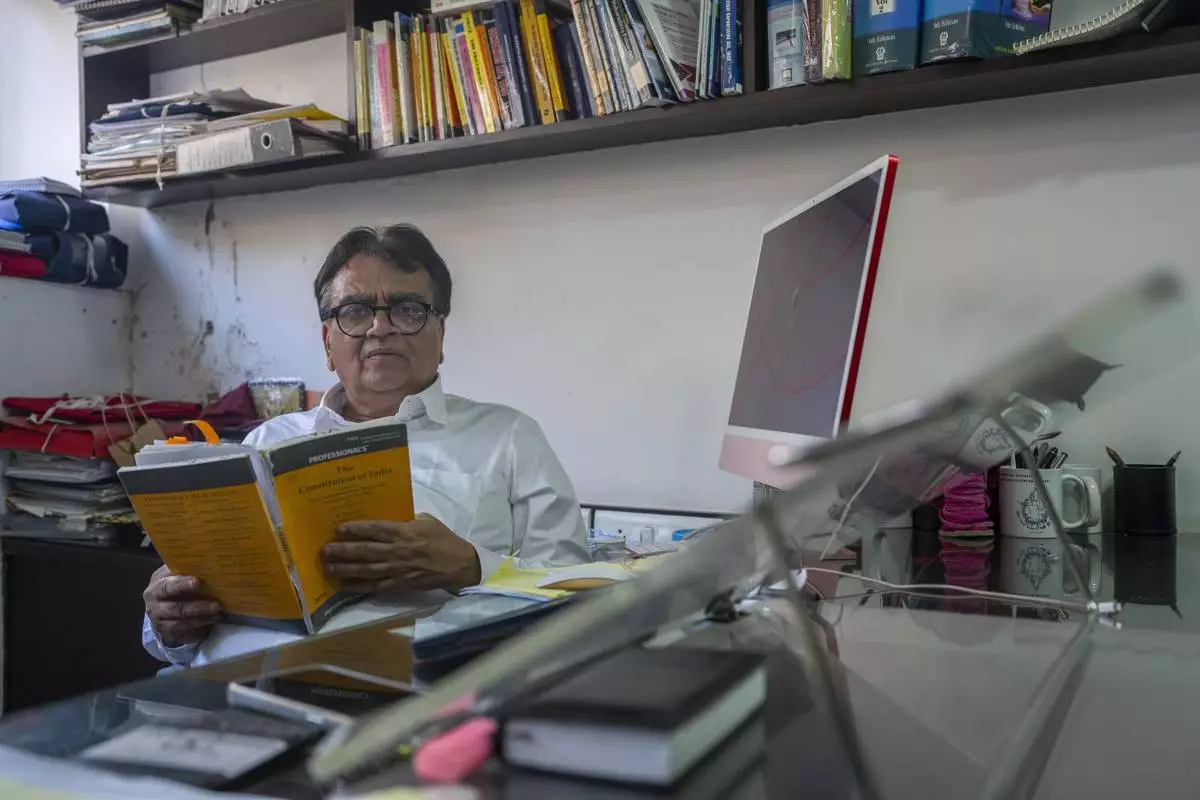
Lawyer Mihir Desai poses for a photograph at his office in Mumbai, India, April 3, 2024. Desai is defending a dozen political activists, journalists and lawyers jailed in 2018 on accusations of plotting to overthrow the Modi government. (AP Photo/Rafiq Maqbool)


